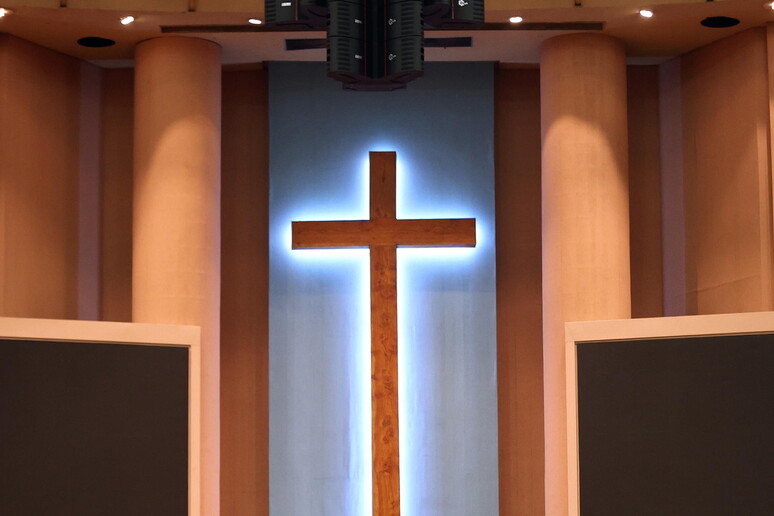Religious freedom returns to the center of the political clash in Washington. The Department of Veterans Affairs (VA) has announced the creation of an internal task force aimed at investigating alleged incidents of discrimination against Christians in the agency’s workplaces. The decision, strongly supported by Secretary Doug Collins, is part of a broader initiative by the Trump administration to reinvigorate faith within public institutions, with a clear focus on Christianity.
In a message addressed to all staff and obtained by the Associated Press, Collins urged employees to report any instances of hostility toward the faith. He requested that reports be detailed, clearly indicating names, dates, and locations. Among the incidents to be reported are the denial of religious exemptions, reprimands for displaying Christian symbols, and alleged retaliation against those who, for reasons of conscience, refused to undergo or participate in medical procedures such as abortion or hormone therapy.
This development comes at a sensitive time for the VA, where an internal restructuring threatens over 80,000 jobs and adds to a general atmosphere of uncertainty. On the institutional front, the decision aligns with the creation of an inter-agency task unit, led by Attorney General Pam Bondi, tasked with identifying and addressing what are described as “anti-Christian biases” across all branches of the federal government.
Collins reiterated that the goal is to protect believers from systemic injustice, particularly in areas such as vaccine mandates, the display of religious icons, and the freedom to express spiritual convictions in the workplace. Other federal agencies, including the Department of State, are following suit by establishing secure channels for reporting religious discrimination.
The initiative has received broad support from Christian and conservative groups, who view it as a bold step in defense of religious freedom. However, criticism was not long in coming. According to Rachel Laser, president of Americans United for Separation of Church and State, a U.S. nonprofit organization committed to defending the separation of church and state, this campaign risks overstepping the bounds of religious freedom and turning into a pretext to legitimize discrimination and undermine civil rights laws.
Democratic Senator Richard Blumenthal also voiced concern, calling the measure unjustified and potentially dangerous to the religious neutrality that every federal agency should uphold. In his view, veterans have fought to defend a country where all faiths should enjoy equal protection, and where the government should never favor one religion over another.
The VA’s internal task force will remain active for two years. During this time, it is expected to review internal policies, collect testimonies, correct any irregularities, and issue operational recommendations. The administration, now under Republican leadership, has promised that oversight will be strict, transparent, and respectful of pluralism.
The United States remains a nation deeply shaped by Christian tradition, with around 70% of the population identifying as Christian. This group is primarily composed of about 43% Protestants, and 20% Catholics, but also includes Orthodox Christians and other smaller denominations such as Evangelicals.
As the growth of other faiths and atheists and agnostics increases, Christianity still remains the country’s dominant religion, yet the threat of its diminishment looms.












